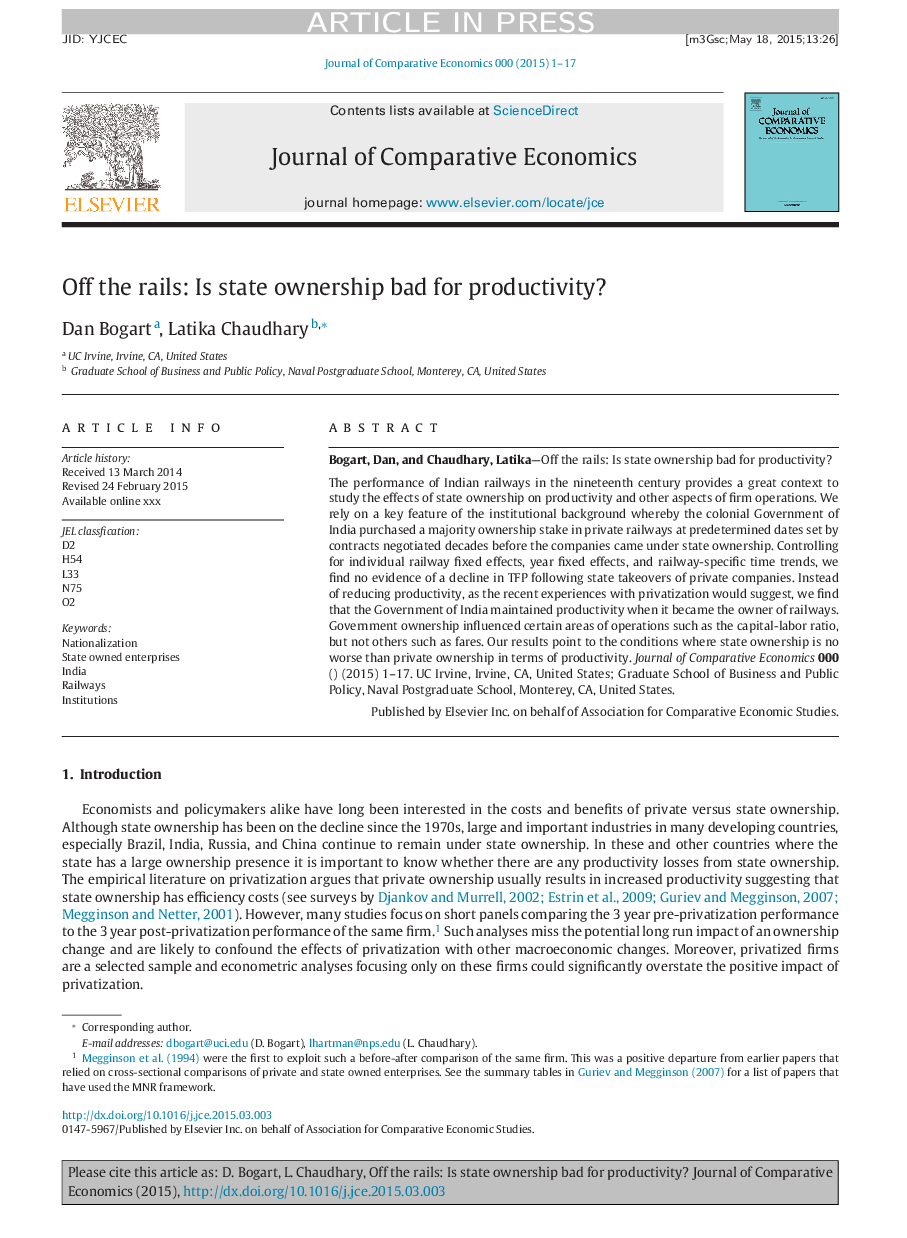| Article ID | Journal | Published Year | Pages | File Type |
|---|---|---|---|---|
| 5092128 | Journal of Comparative Economics | 2015 | 17 Pages |
Abstract
The performance of Indian railways in the nineteenth century provides a great context to study the effects of state ownership on productivity and other aspects of firm operations. We rely on a key feature of the institutional background whereby the colonial Government of India purchased a majority ownership stake in private railways at predetermined dates set by contracts negotiated decades before the companies came under state ownership. Controlling for individual railway fixed effects, year fixed effects, and railway-specific time trends, we find no evidence of a decline in TFP following state takeovers of private companies. Instead of reducing productivity, as the recent experiences with privatization would suggest, we find that the Government of India maintained productivity when it became the owner of railways. Government ownership influenced certain areas of operations such as the capital-labor ratio, but not others such as fares. Our results point to the conditions where state ownership is no worse than private ownership in terms of productivity.
Related Topics
Social Sciences and Humanities
Economics, Econometrics and Finance
Economics and Econometrics
Authors
Dan Bogart, Latika Chaudhary,
